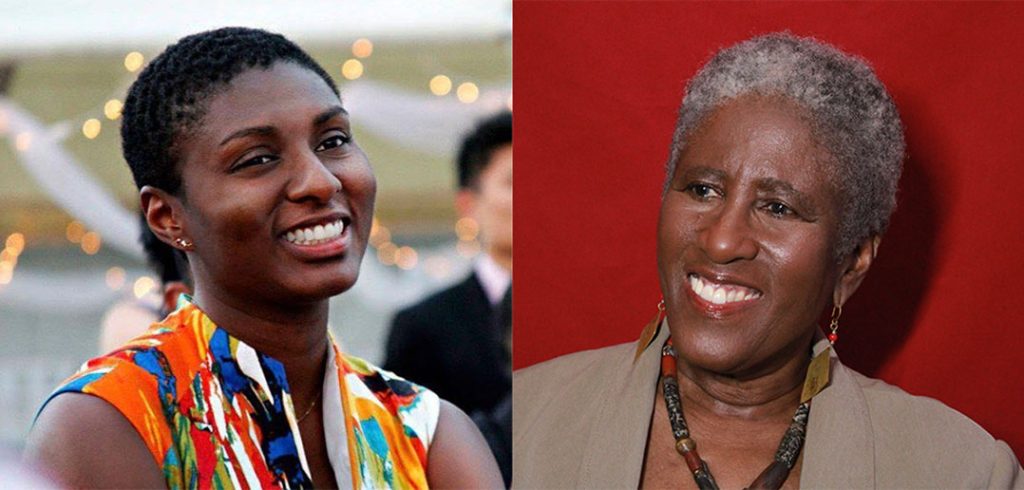“Malcolm X is a well-known figure, but I wanted to know more about his mother and her impact on his life,” said Collins. She recently published the historical fiction novel “Ocean Stirrings” (Peepal Tree Press, 2023), based on the life of Louise Langdon Norton Little, a working mother and activist who raised eight children, including Malcolm X. The book, along with other work by Collins, is currently being taught in Fordham’s African & African American Studies program.
In a Q&A, Lambert—an interdisciplinary scholar who studies literature, history, and the African diaspora—asks Collins about Little’s life and influence and teases a glimpse of what to expect at Collins’s upcoming lecture at the Rose Hill campus.
Lambert: What was Louise’s vision of Black nationalism? What kind of activism was she involved in that Malcolm X might have witnessed and learned from?
Collins: Louise was an activist in the Universal Negro Improvement Association (UNIA) led by Marcus Garvey. She sent in reports from various places where they lived and organized. As she went from place to place with her husband, establishing UNIA groups, she was at the forefront, writing the minutes, organizing people, getting people to come to meetings, talking about Black identities, etc. She was not only doing activist work out there, but also at home, showing her children the work of Grenadian political thinker T.A. Marryshow, for example—helping them realize that Blackness is not stupidity.
Lambert: I can’t help but think about what else she might have done with her life, had she been allowed to continue her education. She really took it upon herself to re-educate her children after they came home from school, helping them to openly question what they learned, teaching her children as Black people and as Black Americans.
Collins: Yes, it was interesting to me how she helped to socialize them. How she told them, “You’re being taught that you are worth less as Negro people. And that is not so.”
Lambert: Most historians agree that Malcolm X is an important figure in Black, American, and Caribbean history. What does the story of Louise Langdon Norton Little add—not only to our understanding of Malcolm, but also to history itself?
Collins: I think she’s important as a woman, mother, and individual, dealing with all of the complexities of a Black woman’s relationships, and the way society responds to her. In a sense, it’s not only her story, but a collective trauma.
Every time someone says her full name, Louise Langdon Norton Little, I think that is a story in itself. Little is the name that her husband had because of the white Littles in Georgia. Norton is the name of the father who raped her mother. Langdon is the name of white colonials in Grenada. So every time her full name is mentioned, I think about all those last names that don’t truly don’t belong to her.
This woman is more than Malcolm X’s mother. We know Malcolm’s story, but there are so many people whose stories we don’t know or acknowledge because they have not come to public attention. Louise Little is one such person.
This interview has been edited and condensed for clarity.
Laurie Lambert joined Fordham’s African and African American Studies department in 2017. She served as the co-founder of the University’s Freedom and Slavery Working Group from 2019 to 2023. She is the author of several published works, including her book “Comrade Sister: Caribbean Feminist Revisions of the Grenada Revolution” (University of Virginia Press 2020). She is the daughter of Grenadians and grew up splitting her time between Toronto and Grenada.
Learn more about the upcoming lecture on Feb. 1, to be held at 6 p.m. in the Great Hall in the McShane Center.


